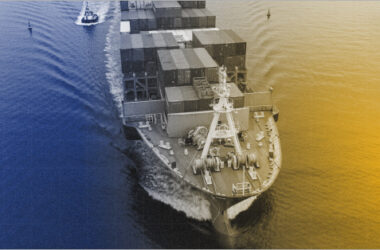The Air Import General Manifest (Air IGM) is an important legal document that airlines are required to file with the customs of a country upon the arrival of goods in a country. It records all consignments on a flight-the name of the shipper, consignee and nature, quantity and description of the shipment and so on.
This document is an inseparable checkpoint in the vast network of global trade. It is used by the customs officials to check shipping information, make sure that importation laws are being followed, and facilitate faster clearance. In brief, Air IGM is the very foundation of an effective import process.
With the help of the Air IGM status, importers can trace the shipment of their goods in real-time. Not only does this help avoid unjustified delays, but also enhances logistical coordination and communication with the customer. Being updated on the status of Air IGM can spell the difference between hassle-free cargo movements and costly disruptions.
Air IGM (Air Import General Manifest): An Overview
The Air IGM is a vital part of air cargo logistics. It is a comprehensive statement of all goods being shipped on a flight–it provides the name of the shipper, the name of the consignee and the description of the cargo. This document is electronically submitted to the customs of the destination country by the carrier or its authorized agent prior to the landing of the aircraft.
In fact, the concept of an Import General Manifest (IGM) was first developed in maritime shipping where it plays a similar role in sea freight. There, it is known as a Sea IGM, which shipping lines use to list all the cargo on a ship. The only difference lies in the medium of transport; airlines file Air IGMs and shipping companies file Sea IGMs.
It is important that the Air IGM is filed correctly and on time. It is used by customs officers to compare incoming deliveries, calculate taxes and duties, and verify that trade regulations are adhered to. An appropriately filed manifest accelerates cargo clearance, reduces inspection time and can be used as a formal account of imports.
The Air IGM also provides trade data analysis and cargo security checks, in addition to providing operational convenience. Non-compliance, however, can cause fines or detention shipment or even legal action; so accuracy and compliance are a non-negotiable requirement.
Significance of Air IGM
The Air Import General Manifest is of paramount importance in the international trade system because of many reasons:
- Ensures Correct Documentation of Imported Goods
The Air IGM has important cargo information including item description, quantity, and declared value. This transparency aids customs officials in legitimizing shipments, as well as keeping accurate import records.
- Facilitates Quick Customs Clearance
Having been provided with cargo information beforehand, the customs officers may initiate clearance operations before the plane even lands. This proactive activity reduces the clearance time and delivers the goods faster to the consignees.
- Prevents Delays and Fines
An error free and timely Air IGM ensures that importers avoid bureaucratic delays that may either lead to financial fines or delays. Correct documentation can guarantee compliance and keep trade operations uninterrupted.
- Helps Avoid Legal Issues
Compliance with customs rules in the form of the proper filing of Air IGM helps businesses avoid possible legal issues. Compliance guarantees transparency- which is central for maintaining trust and continuity in business operations.
- Helpful for Importers, Freight Forwarders and Customs Agents
A properly submitted Air IGM is beneficial to all supply chain participants. It simplifies the process of coordination amongst the importers, freight forwarders and customs agents- eliminating mistakes in paperwork and making it easier to handle cargoes.
Working of the Air IGM Process
The Air Import General Manifest (Air IGM) process starts way before the cargo even gets to its destination. The carrier or freight agent gathers all the information on the shipments including the flight number, cargo type, and consignee information, and files them with the customs authorities through the ICEGATE system.
This process must be well understood to facilitate smooth operations and timely clearance Here’s how the Air IGM process typically unfolds:
- Preparation: All the shipment data, flight data, description of cargo and consignee data are gathered by the airline or cargo handler.
- Submission: The Air IGM is submitted in an electronic format using ICEGATE which is the official customs portal under Central Board of Indirect Taxes and Customs (CBIC). This filing should be done at least 24 hours prior to the arrival of the aircraft.
- Verification: The customs officers go through the manifest to ensure that entries are consistent with the supporting documents and that they comply with the import rules.
- Approval: If the verification is completed successfully, customs issues a clearance, and the goods are shipped to the importer or warehouse.
Proper accuracy at every stage is important. Any slight deviation in the Air IGM may cause delays, fines, or complexities. This means that this process should be treated with a lot of care by all the stakeholders.
How Can You Track Air IGM Status Online?
Tracking your Air Import General Manifest (IGM) status online in India is straightforward. Here’s a step-by-step guide for IGM enquiry:
- Access the ICEGATE Portal: Visit the official ICEGATE website (Indian Customs Electronic Gateway).
- Navigate to Air IGM Enquiry: On the homepage, look for “Tracking at ICES” or “Document Status”. From the menu, select “AIR IGM” to reach the inquiry page.
- Enter Required Details:
- Select Location: Choose the relevant air cargo station from the dropdown list.
- Enter AWB Number: Input your Air Waybill (AWB) number—the unique identifier for your shipment.
- Captcha Verification: Enter the captcha code displayed.
- Submit Information: Click on “Submit” to process your IGM enquiry request.
- View Status: The system will show your shipment’s current status, including the line number, MAWB number, port of shipment, port of destination, gross weight, and total packages.
Through frequent monitoring of your Air IGM enquiry status, you can anticipate possible issues and deliver your cargo on time.
Advantages of Tracking Air IGM Status
Regular Air IGM tracking offers a variety of benefits contributing to the efficiency of logistics and reliability of businesses:
- Gaining Real-Time Shipment Updates: Track the progress of your shipment within the customs process.
- Prevention of Delays: Delays in clearance can be prevented by early identification of problems and timely corrective action.
- Ensuring Compliance: Regular Air IGM tracking would also ensure that all the documents are correct and in line with the customs.
- Improved Customer Service: You can keep your customers updated about the shipment progress, and this builds confidence as well as satisfaction.
- Effective Resolution of Issues:On-time visibility facilitates quicker resolution of discrepancies or documentation mistakes.
- Accelerated Customs Procedures: Continuous monitoring can speed up the processes of customs and can ensure smooth movement of the cargo.
- Improved Inventory Management: Being aware of the arrival time of goods can aid in improved planning and control of stock.
- Cost Savings: Avoiding penalties and storage costs through proactive tracking results in measurable financial benefits.
Thus, Air IGM tracking is not only a good practice to incorporate in your logistics process, but also a strategic business advantage that enhances efficiency throughout the supply chain.
Final Thoughts
Companies that engage in international trade cannot do without a good understanding of the air IGM process. Effective regulatory compliance, avoidance of delays, and facilitation of efficient cargo movement are ensured through proper documentation and regular tracking.
However, even the most well-organized shipments are subject to risks–weather inconveniences, mishandling mistakes, or transit losses can happen unexpectedly. This is where Marine Insurance comes in. It is a financial protection layer, which insures goods transported by air, sea, rail, road, etc., against unexpected losses or accidents.
At BimaKavach, we provide reliable and customizable Marine Insurance solutions designed to safeguard your cargo from unexpected setbacks. We will help you obtain broad coverage and absolute peace of mind- so that you can focus on growth, while these policies handle the risks of transit.
Talk to our seasoned experts, choose Marine Insurance policies to secure your shipments, ensure smooth deliveries, and maintain your business’s continuity and credibility in the global marketplace.







